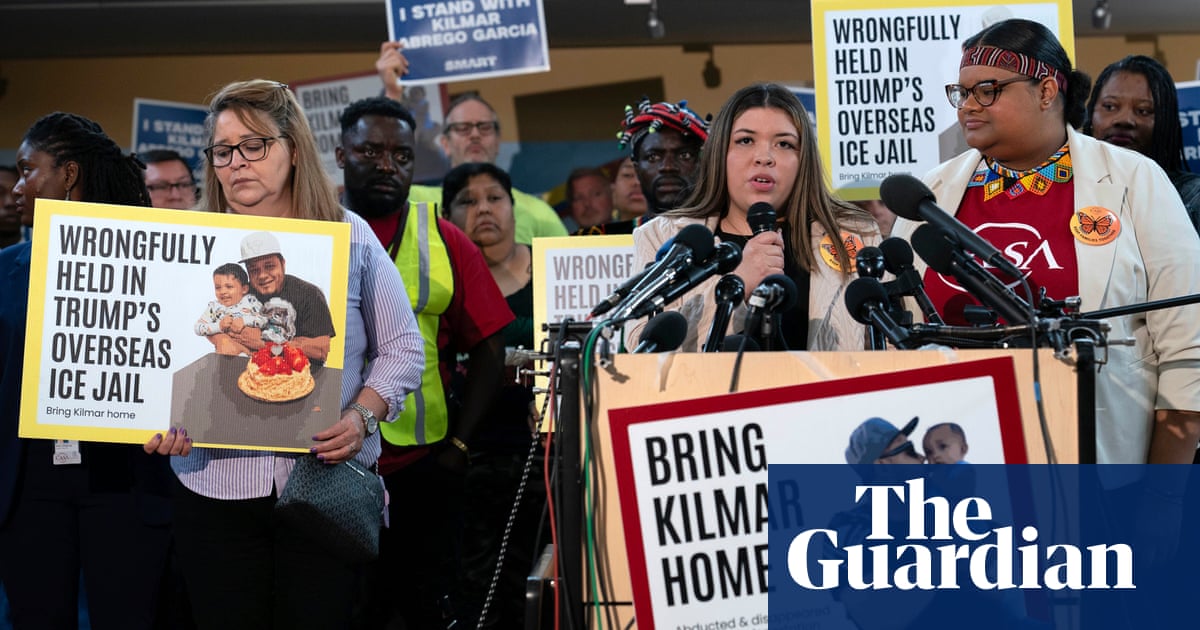Kristi Noem, the US homeland security secretary, said that if Kilmar Ábrego García was sent back to the US, the DonaldTrump administration“would immediately deport him again”.
Noem repeated White House assertions about Ábrego García, a Salvadorian man who the Trump administration has admitted was mistakenly deported from Maryland last month, in a new interview withCBS.
“[Ábrego García] is not under our control. He is anEl Salvadorcitizen. He is home there in his country. If he were to be brought back to the United States of America, we would immediately deport him again,” Noem said of the 29-year-old who entered the US illegally around 2011 after fleeing gang violence.
Ábrego García was subsequentlyaffordeda federal protection order against deportation to El Salvador. Despite the order, on 15 March, Immigration and Customs Enforcement officials deported Ábrego García to El Salvador where he was held in the Center for Terrorism Confinement, acontroversial mega-prison.
Though the Trump administration admitted that Ábrego García’s deportation was an“administrative error”, it has repeatedly cast him as an MS-13 gang member on television – a claim his wife, a US citizen, and his attorneys staunchly reject. Ábrego García has no criminal record in the US,according tocourt documents.
Since Ábrego García’s deportation, the Trump administration has refused to bring him back to the US – despite the supreme courtunanimously orderingit to “facilitate” his release. Trump officials claim that US courts lack jurisdiction over the matter because Ábrego García is a Salvadorian national and no longer in the US.
Noem asserted the Trump administration’s claims to CBS, saying: “President Trump and his administration has adhered to the court and respects the court and its decision,” adding, “This individual is not under the United States of America’s jurisdiction and he is not one of our citizens. He is home in his home country. And that’s up to that country to decide what to do.”
Last week, a federal judgeaccusedthe White House of “bad faith” in the case, arguing that “defendants have sought refuge behind vague and unsubstantiated assertions of privilege, using them as a shield to obstruct discovery and evade compliance with this court’s orders”.
Yet, Noem maintains that the Trump administration spends “hours and hours” building cases against alleged gang members.
Upon being asked about the administration’s claims against individuals who have been deported without due process, the homeland security secretary said: “Obviously, we’re relying on the expertise of our investigators, our teams, double-checking, triple-checking, going through the paperwork, making sure that we have done everything absolutely correctly.”
Noem also accused federal judges who have issued court orders the Trump administration dislikes as “activist judges”.
“I’m sure that these judges will continue to challenge every single thing that this administration does. We have several activist judges across the country,” she said, despite some of the judges who haveruled againstTrump’s immigration policies being nominated by Republicans.
Earlier this month, J Harvie Wilkinson, a Ronald Reagan-appointee and conservative appellate judge,calledthe Trump administration’s claims in Ábrego García’s case “shocking”, saying: “This should be shocking not only to judges, but to the intuitive sense of liberty that Americans far removed from courthouses still hold dear.”
